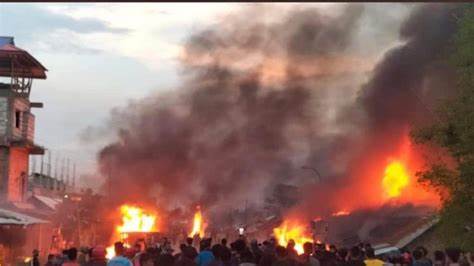Amidst the ongoing violence in Manipur, the state government has suspended internet services and imposed a curfew, while the Indian army has been deployed to maintain law and order. The situation in the state has been tense for several weeks, with clashes reported between different communities, leading to loss of life and property damage.
The root cause of the conflict can be traced back to the issue of land ownership and its distribution among different ethnic groups in the state. Manipur is home to several ethnic groups, each with their distinct language, culture, and customs. However, over the years, the state has witnessed a steady influx of migrants from other parts of India, leading to a competition for resources and opportunities.
This has resulted in deep-seated tensions between the different communities, which have occasionally erupted into violence. The current unrest is believed to have been triggered by a recent decision by the state government to allocate land to a particular community, which has been opposed by other groups.
The suspension of internet services and imposition of a curfew is aimed at preventing the spread of rumors and misinformation that can aggravate the situation. However, it has also led to inconvenience for the general public, who rely on the internet for their daily activities.
The deployment of the Indian army has been met with mixed reactions, with some welcoming the move as a necessary step to restore order, while others see it as an infringement of their rights and an unnecessary show of force.
In the long term, the state government will need to address the underlying issues of land ownership and resource distribution to prevent such conflicts from recurring. This will require a sensitive and inclusive approach that takes into account the concerns and aspirations of all communities in the state.


